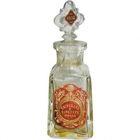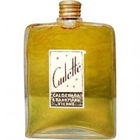We may earn a commission when you buy from links on our site, including the eBay Partner Network and Amazon.
Clou Calderara & Bankmann 1913
A perfume by Calderara & Bankmann for women and men, released in 1913. The production was apparently discontinued.
Compare
Compare
No ratings yet.
Submitted by Mefunx, last update on 11/21/2018.
Smells similar
What the fragrance is similar to














